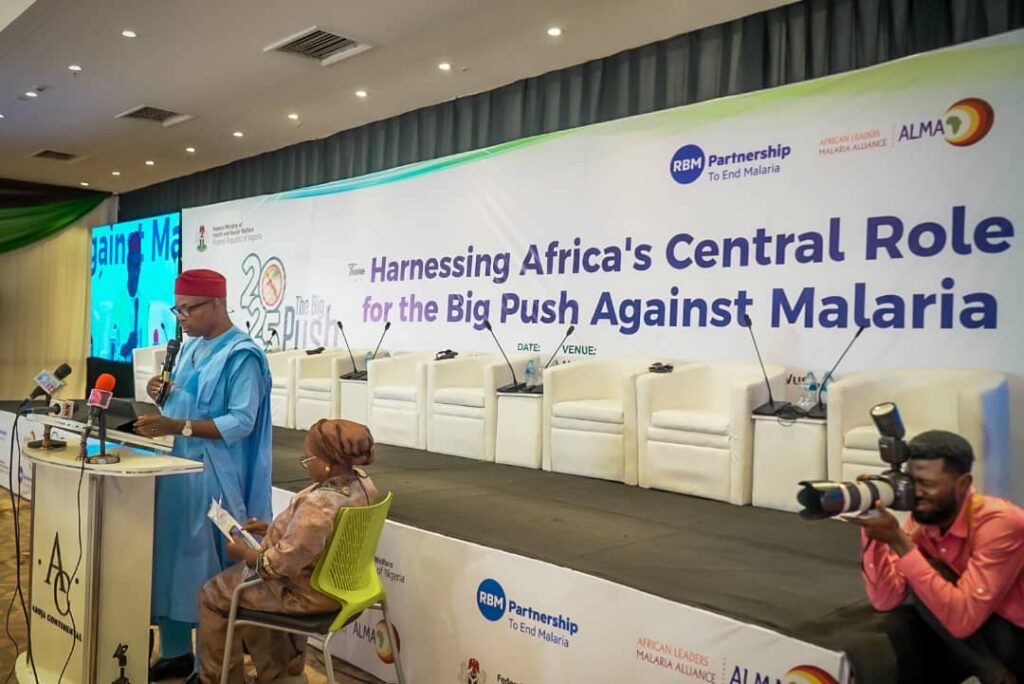The Minister of State for Health, Dr. Iziaq Salako, has said that to successfully eliminate malaria, Africa must join forces both financially, innovatively and mentally to develop new tools and strategies needed to effectively combat and prevent the spread of malaria and malaria resistance.
Speaking at a meeting on ‘Harnessing Africa’s Central Role Against Malaria Big Push on Thursday in Abuja, he noted that despite the progress made in the fight against malaria, the current trajectory was not enough to meet the goal of eliminating malaria in Africa by 2030.
He said: “It is extremely distressing that malaria, a disease that is both preventable and treatable, continues to be a leading cause of illness and death in Nigeria and throughout the African continent.
“Despite the efforts of many decades, the latest estimates reveal a staggering 263 million cases of malaria and 597,000 deaths recorded in 2023 alone, with Africa bearing 94% of cases and 95% of deaths. These alarming figures underscore the urgent need for accelerated action.
“To truly defeat this disease, we must rethink, join our forces together and mount a concerted effort, giving a ‘big push’ to overcome the many challenges that stand in our way. We must reach all at-risk populations with essential prevention, diagnosis and treatment services.”
Salako, who raised concerns over the growing resistance of mosquitoes to insecticides, noted that the “big push” strategy should help in rallying governments, organisations, and individuals to mobilise the resources necessary to invest in research and development for greater impacts, to ensure access to effective malaria treatment and preventive measures.
“As we embark on this important journey, we will be confronted with some emerging challenges requiring innovative solutions. One significant obstacle is the rise of insecticide resistance in certain areas.
“As we know, Insecticides are essential in malaria control, but mosquitoes are increasingly developing resistance to commonly used chemicals, making population control more difficult and causing a resurgence of malaria in previously contained regions. It is critical to develop new, more effective approaches to combat and prevent the spread of resistance.”
The Monster also noted that armed conflict and natural disasters were equally contributing to the rising number of malaria cases.
“Displaced populations, often lacking access to healthcare and prevention, are particularly vulnerable. Addressing the root causes of these crises and providing targeted support will be vital to stop the spread of malaria among these at-risk communities.
“We are also confronted with extreme weather events, especially floods and droughts, which add further complexity. Such events can disrupt health systems and provide ideal breeding grounds for mosquitoes. As climate change continues to impact our world, proactive, adaptive strategies are necessary to mitigate its effects on malaria transmission.
“Investment in research and development that will yield new tools and technologies and further enhance prevention and treatment opportunities is equally important. Through a comprehensive, evidence-based approach, we can leapfrog our movement and better assure success in the journey to eliminate malaria as a health threat in Nigeria and across Africa by 2030.
“Malaria continues to evolve, making its control and eradication especially challenging. Countries that have eliminated the disease must persevere, adapt, and accelerate their efforts to outpace malaria’s relentless progress and prevent re-establishment. Those of us still battling the scourge must diligently operationalise existing strategies and implement new actions.
“Our efforts will require robust government commitment, innovative thinking, and sufficient resources. The renewed determination embodied by the “big push” initiative should revitalise our mission to end malaria and result in rejuvenated efforts across the continent, including Nigeria.
“Such efforts like the Advisory for Malaria Elimination in Nigeria ( AMEN), The Malaria Elimination Task Force, introduction of malaria vaccine, the test and treat strategy, and other key efforts signify a renewed momentum in Nigeria for a malaria-free future.”















